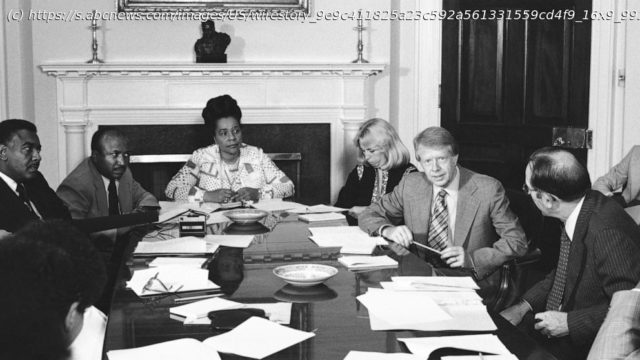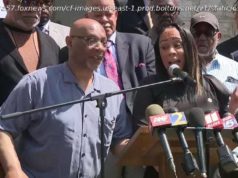Jimmy Carter is now 98 years old as he receives hospice care
The voice of Martin Luther King Sr., a melodic tenor like his slain son, carried across Madison Square Garden, calming the raucous Democrats who had nominated his friend and fellow Georgian for the presidency.
“Surely, the Lord sent Jimmy Carter to come on out and bring America back where she belongs,” the venerated Black pastor said as the nominee smiled behind him. “I’m with him. You are, too. Let me tell you, we must close ranks now.”
Carter then shared a moment with Coretta Scott King, clasping hands and locking eyes with the widowed first lady of the Civil Rights Movement, their children looking on.
For the Kings, closing the 1976 convention affirmed their continued reach — and their pragmatism — eight years after Martin Luther King Jr. was assassinated. For Carter, it marked the evolution of a white politician from the Old Confederacy: As a local leader and state senator who aspired for more, he had mostly avoided controversial stands during the civil rights era. During all their years in Atlanta, he never met the movement’s leader.
“Carter never did anything racist himself. But he didn’t participate,” biographer Jonathan Alter said. “And King was right there.”
Yet the alliance Carter later forged with the King family endured as he grew into a governor, president and global humanitarian who advanced racial equality and human rights.
“He was one of the few presidents who really was an advocate for the Black community out of a pureness of heart,” said the Rev. Bernice King, who leads the King Center that her mother founded.
Now 98, Carter is receiving hospice care in Plains, Georgia. King, just 39 when he was gunned down in 1968, would have been 94.
Certainly, King would have expanded his own legacy with a longer life span — after civil rights victories for Black Americans he turned his focus to challenging Western militarism and rapacious capitalism — and there’s no way to know what kind of relationship King might have had with Carter once the Georgia Democrat reached high office.
As it was, Carter used the most visible decades of his public life to reflect King’s values and often his rhetoric, while playing a central role in memorializing King as an American icon.
Carter opened government contracts to Black-owned businesses and appointed record numbers of Black citizens to executive and judicial posts. He steered more public money to historically Black colleges and opposed tax breaks for discriminatory private schools. He echoed King’s emphasis on peace, expressing pride long after his presidency that he never started a shooting war.
Carter quoted many of the same theologians King cited in his practice of nonviolent resistance, and he would join King in 2002 as a Nobel Peace Prize winner. As a former president, Carter tracked King’s later economic observations, declaring the U.






